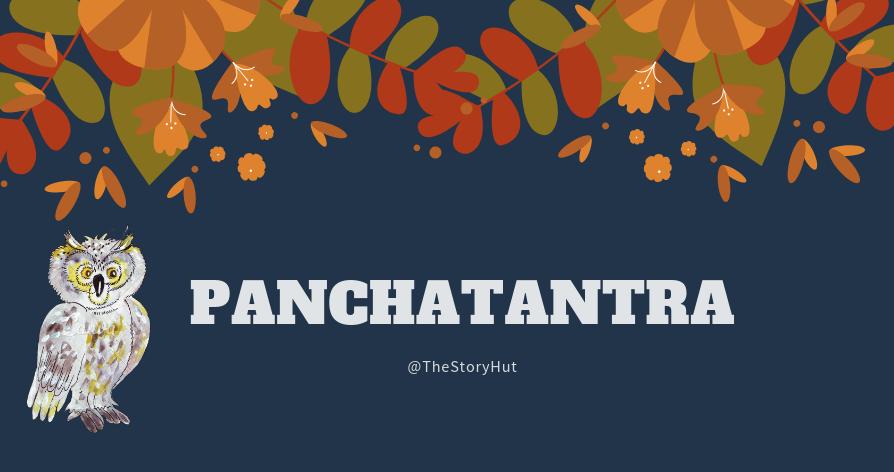
[su_dropcap style=”flat” size=”4″]I[/su_dropcap]n the southern country was a city called Maidens’ Delight. It rivalled the city of heaven’s King, so abounding in every urban excellence as to form the central jewel of Earth’s diadem. Its contour was like that of Kailasa Peak. Its gates and palaces were stocked with machines, missile weapons, and chariots in great variety. Its central portal, massive as Indrakila Mountain, was fitted with bolt and bar, panel and arch, all formidable, impressive, solid. Its numerous temples lifted their firm bulk near spacious squares and crossings. It wore a moat-girdled zone of walls that recalled the high-uplifted Himalayas.
In this city lived a merchant named Increase. He possessed a heap of numerous virtues, and a heap of money, a result of the accumulation of merit in earlier lives.
Having thus set his mind in order, he collected merchandise bound for the city of Mathura, assembled his servants, and after saying farewell to his parents when asterism and lunar station were [21} auspicious, set forth from the city, with his people following and with blare of conch-shell and beat of drum preceding. At the first water he bade his friends turn back, while he proceeded.
To bear the yoke he had two bulls of good omen. Their names were Joyful and Lively; they looked like white clouds, and their chests were girded with golden bells.
Presently he reached a forest lovely with grisleas, acacias, dhaks, and sals, densely planted with other trees of charming aspect; fearsome with elephants, wild oxen, buffaloes, deer, grunting-cows, boars, tigers, leopards, and bears; abounding in water that issued from the flanks of mountains; rich in caves and thickets.
Here the bull Lively was overcome, partly by the excessive weight of the wagon, partly because one foot sank helpless where far-flung water from cascades made a muddy spot. At this spot, the bull somehow snapped the yoke and sank in a heap. When the driver saw that he was down, he jumped excitedly from the wagon, ran to the merchant not far away, and humbly bowing, said: “Oh, my lord! Lively was wearied by the trip, and sank in the mud.”
On hearing this, merchant Increase was deeply dejected. He halted for five nights, but when the poor bull did not return to health, he left caretakers with a supply of fodder, and said: “You must join me later, bringing Lively, if he lives; if he dies, after performing the last sad rites.” Having given these directions, he started for his destination.
But one day a lion named Rusty, with a retinue of all kinds of animals, came down to the bank of the Jumna for water. There he heard Lively’s prodigious bellow. The sound troubled his heart exceedingly, but he concealed his inner feelings while beneath a spreading banyan tree he drew up his company in what is called the Circle of Four.
Now the divisions of the Circle of Four are given as: (i) the lion, (2) the lion’s guard, (3) the understrappers, (4) the menials. In all cities, capitals, towns, hamlets, market-centres, settlements, border posts, land-grants, monasteries, and communities there is just one occupant of the lion’s post. Relatively few are active as the lion’s guard. The understrappers are the indiscriminate throng. The menials are posted on the outskirts. The three classes are each divided into members high, middle, and low.
Now Rusty, with counsellors and intimates, enjoyed a kingship of the following order. His royal office, though lacking the pomp of umbrella, flyflap, fan, vehicle, and amorous display, was held erect by sheer pride in the sentiment of unaffected pluck. It showed unbroken haughtiness and abounding self-esteem. It manifested a native zeal for unchecked power that brooked no rival. It was ignorant of cringing speech, which it delegated to those who like that sort of thing. It functioned by means of impatience, wrath, haste, and hauteur. Its manly goal was fearlessness, disdaining fawning, strange to obsequiousness, unalarmed. It made use of no wheedling artifices, but glittered in its reliance on enterprise, valour, dignity. It was independent, unattached, free from selfish worry. It advertised the reward of manliness by its pleasure in benefiting others. It was unconquered, free from constraint and meanness, while it had no thought of elaborating defensive works. It kept no account of revenue and expenditure. It knew no deviousness nor time-serving, but was prickly with the energy earned by loftiness of spirit. It wasted no deliberation on the conventional six expedients, nor [24} did it hoard weapons or jewellery. It had an uncommon appetite for power, never adopted subterfuges, was never an object of suspicion. It paid no heed to wives or ambush-layers, to their torrents of tears or their squeals. It was without reproach. It had no artificial training in the use of weapons, but it did not disappoint expectations. It found satisfactory food and shelter without dependence on servants. It had no timidity about any foreign forest, and no alarms. Its head was high.
Now Rusty had in his train two jackals, sons of counsellors, but out of a job. Their names were Cheek and Victor. These two conferred secretly, and Victor said: “My dear Cheek, just look at our master Rusty. He came this way for water. For what reason does he crouch here so disconsolate?”
Why meddle, my dear fellow?” said Cheek. “There is a saying:
Death pursues the meddling flunkey:
Note the wedge-extracting monkey.”
“How was that?” asked Victor. And Cheek told the story of The Wedge-Pulling Monkey.

